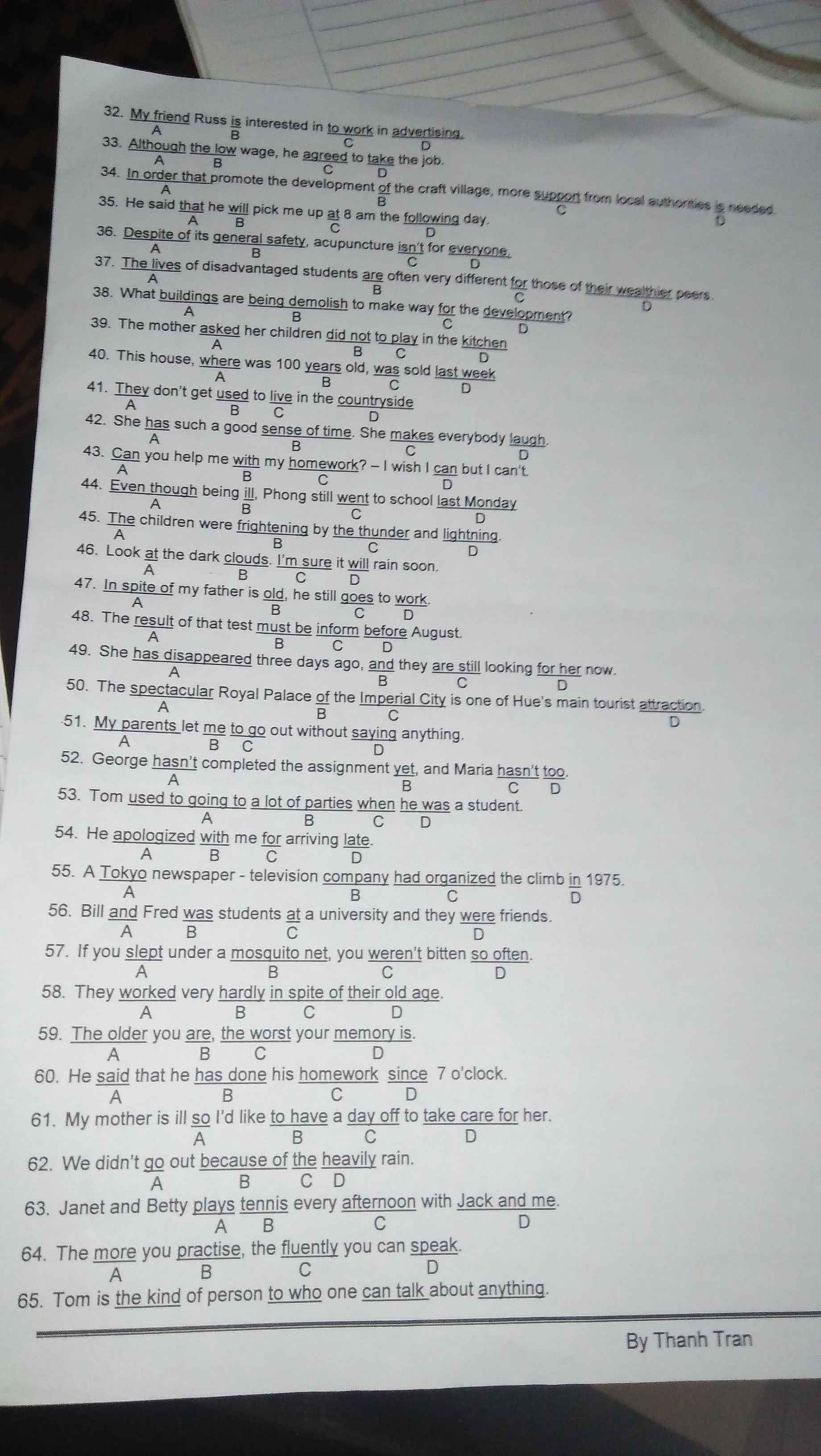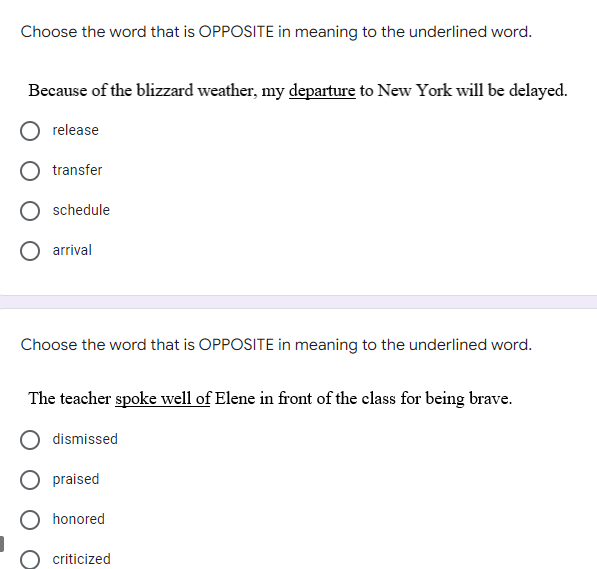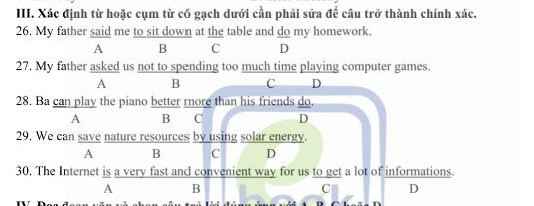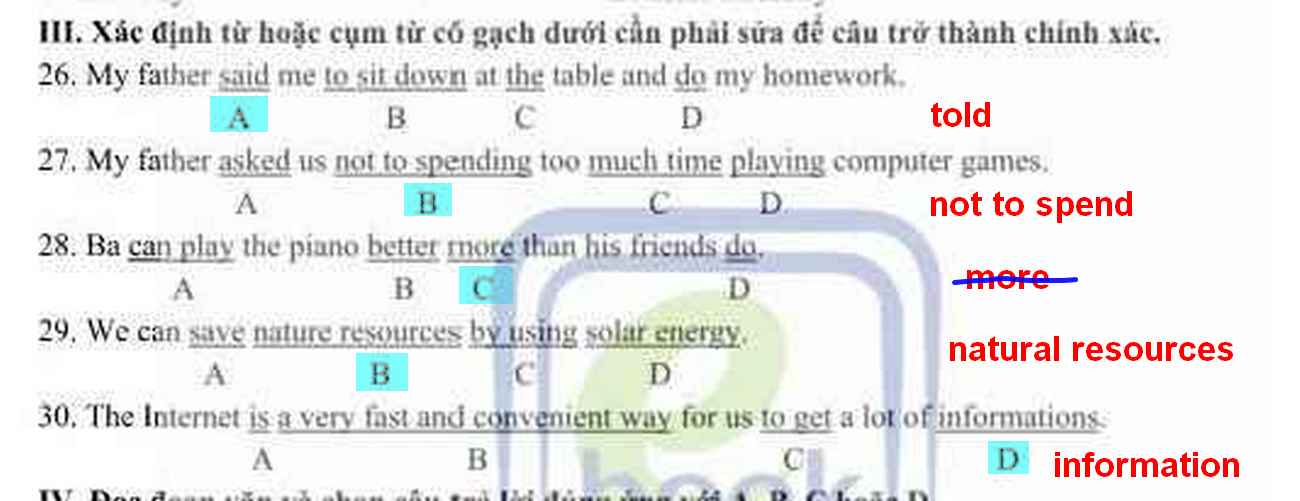
Hãy nhập câu hỏi của bạn vào đây, nếu là tài khoản VIP, bạn sẽ được ưu tiên trả lời.



Có chút answer về bài bác đăng, sai xin đừng trách :)
Tờ 1 ko rõ




1. did you get good grade last semester , didn't you ?
2. is mr.mc guiness from ireland , isn't he ?
các câu còn lại là câu hỏi yes/no question bạn muốn trả lời là yes hay no cx đc

 Bạn cho mình hỏi "trò chơi kéo co " được viết bằng tiếng anh như thế nào không ???
Bạn cho mình hỏi "trò chơi kéo co " được viết bằng tiếng anh như thế nào không ???![]()


As this recent infographic illustrates, the most widely used language on the internet is English, which is used on more than half of all the pages on the web. Those pages cover every style of English – business, conversational, scientific reports, news, sports, debates, local dialects and more – which makes the internet an ideal resource for interactive learning.
While access to current English books or newspapers may not be easy, you can always use the internet to find content on almost any topic. Practise your English language learning by reading books or newspaper articles, listening to the radio or podcasts and by watching streaming videos of TV and film.
You can use the internet to shape your language studies. If you’re learning English to go on holiday, for example, you can look up detailed information about the place that you’ll be visiting. Or if you’re learning English for your career, you can find out more about the sector you work in, including common words and phrases, and industry-specific terminology.
One of the biggest advantages of using the internet to support your language learning is how much it can help you understand the culture of another country. This is especially true when it comes to watching video online. Watching the news, including sports coverage, or popular TV shows can help you see the world through the eyes of another country and give you an insight into how its culture differs from your own.
But perhaps the most exciting opportunity that the internet presents English language learners is the ability to communicate in real-time with native speakers. Using video calling, instant messaging and online forums means you can join in live conversations and debate – a superb way to practise your spoken and written English.
And, as anyone who has ever made an error when posting a comment on a blog will tell you, there are always lots of people willing to help you correct your grammar!

As this recent infographic illustrates, the most widely used language on the internet is English, which is used on more than half of all the pages on the web. Those pages cover every style of English – business, conversational, scientific reports, news, sports, debates, local dialects and more – which makes the internet an ideal resource for interactive learning.
While access to current English books or newspapers may not be easy, you can always use the internet to find content on almost any topic. Practise your English language learning by reading books or newspaper articles, listening to the radio or podcasts and by watching streaming videos of TV and film.
You can use the internet to shape your language studies. If you’re learning English to go on holiday, for example, you can look up detailed information about the place that you’ll be visiting. Or if you’re learning English for your career, you can find out more about the sector you work in, including common words and phrases, and industry-specific terminology.
One of the biggest advantages of using the internet to support your language learning is how much it can help you understand the culture of another country. This is especially true when it comes to watching video online. Watching the news, including sports coverage, or popular TV shows can help you see the world through the eyes of another country and give you an insight into how its culture differs from your own.
But perhaps the most exciting opportunity that the internet presents English language learners is the ability to communicate in real-time with native speakers. Using video calling, instant messaging and online forums means you can join in live conversations and debate – a superb way to practise your spoken and written English.
And, as anyone who has ever made an error when posting a comment on a blog will tell you, there are always lots of people willing to help you correct your grammar!











 mn giúp mk với
mn giúp mk với 

 Giúp mình nha !!!
Giúp mình nha !!! 

1 B => it was
2 D => bought
3 B => much
4 B => bỏ
5 B => interesting holiday
6 B => weeding
7 D => isn't he
8 B => of controlling
9 C => wouldn't
10 C => since
11 B => reading
12 B => sings
13 B => to have
14 A => I could go
15 B => bored
16 D => wonders
17 D => the following month
18 C => was talking
19 A => bỏ
20 D => finishing
21 A => suggests
22 C => explained
23 C => that
24 D => aren't I
25 B => drinking
26 C => since
27 last night => the previous night
28 B => although
29 D => have you
30 B => it was
31 A => which
1B 2D 3B 4B 5B 6B 7D 8B 9C 10C 11B 12B 13A 14A 15B 16D 17D 18C 19A 20D 21A 22C 23C 24D 25B 26C 27D 28B 29D 30B 31A 32C 33A 34A 35B 36A 37C 38B 39C 40A 41C 42B 43D 44A 45B 46D 47A 48C 49A 50D 51C 52D 53A 54B 55C 56B 57C 58B 59C 60B 61D 62D 63A 64C 65B
Lần sau tách ra nha b 😅